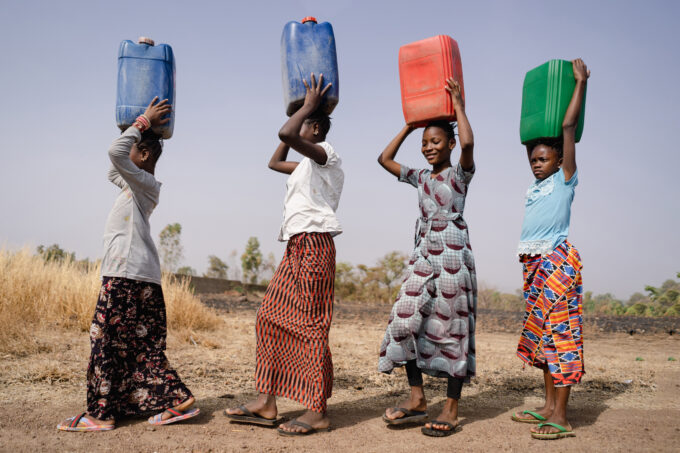According to the World Bank, about 1.7 billion adults worldwide do not have access to financial services. At the same time, about half of the world’s population (3.6 billion), lack adequate sanitation services in their homes, and one in three people on the planet have no access to safe drinking water. The access gap is equally profound in other essential services such as health, education, decent housing, electricity, and telecommunications – and it is linked to the extent and scope of global poverty.
About one in 10 people around the world (nearly 700 million people) live in extreme poverty with difficulty in accessing food, education, water, and sanitation (UN figures). Unfortunately, this percentage could very well increase given the lingering effects of the COVID-19 pandemic and rising international geopolitical tensions in today’s increasingly globalized world.
As these statistics underscore, there is no time to lose. Joint efforts must be made to facilitate pathways toward progress and well-being. The financial sector has taken steps toward this goal, among them the implementation of “social finance” initiatives that mobilize public and private capital to address these grave social challenges through high-impact investments. This approach is driven by increasing investor demand to find opportunities that have an economic return but also cover the “triple P”: people, planet, and purpose.
One of the financial products that contributes to these solutions is social bonds. These are debt instruments that can be used to finance basic infrastructure projects (water and sanitation, low- and mid-income housing, sustainable transportation) and access to critical services such as health, education, and food security. Social bonds can also facilitate business financing and advice, with an emphasis on the small- and medium-sized enterprises (SMEs) that form the basis of the entrepreneurial ecosystem and the backbone of job creation in many economies but struggle to find affordable sources of finance. In addition, social bonds support microfinance institutions that promote financial inclusion through savings, access to credit, gender equality and women’s empowerment, poverty reduction, and inclusive economic growth.
Social bonds differ from more traditional debt issuances because, in addition to offering an investment return to investors, the funds must be used to target social impact causes. The bond issuers have a public commitment to allocate funds towards specific social sectors and investors receive an annual report explaining how the funds have been utilized.
From 2005 to now: Tracing the steps to our first social bond
Citi issued its first social finance bond in 2021, raising $1bn from investors to fund transactions focusing on the sectors mentioned above in emerging market countries. The bond was oversubscribed, showing there is strong interest in these thematic bonds from institutional investors.
The bond forms a crucial step in the bank’s public commitment to sustainable finance, which we also announced in 2021. Within this, we set a target of raising $1tn for sustainability assets by 2030, aligning with the agenda of the UN Sustainable Development Goals. As part of our social finance goal, we intend to expand access to essential services for 15 million households, including 10 million women, within the first few years.
This first social finance bond did not come out of nowhere; before I joined Citi, the team had been working towards it for several years – starting formally in 2005 with the creation of Citi Social Finance as a dedicated specialist business unit. This team works hand-in-hand with the bank’s various product areas to create and implement solutions that enable us as well as our clients, partners, and allies to move the needle on financial inclusion, improve access to basic services like health, education, and water, drive job creation, and fund social infrastructure projects in the more than 50 emerging markets where we operate. In essence, the team facilitates access to international markets to increase the flow of public and private capital towards social development projects and social enterprises, very often in local currencies.

Audio available





